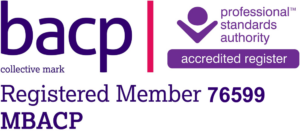COUNSELLING AND PSYCHOTHERAPY
What are they?
Counselling and psychotherapy are talking therapies which can help with a wide range of difficulties – these may be only mild and temporary, or they may be more longstanding and harder to resolve.
Counselling typically focuses on a specific problem for a limited number of sessions. Psychotherapy addresses more deep-seated issues, often arising from influences and relationships earlier in life. Very often a problem which appears to exist in the present moment can be found to have its roots somewhere in the past. In my view therefore, this distinction between counselling and psychotherapy is not always helpful. Each client is unique and correspondingly requires a way of working which is unique to them. (In the context of this website, I use ‘counselling’ to cover both forms of therapy).
Counselling is very much a collaborative process between counsellor and client; the counsellor uses her training, skills, knowledge, experience and personal qualities – the client brings their own experience, knowledge and personal resources.
The Importance of the Therapeutic Relationship
You may have supportive family and friends, but it can be difficult to discuss personal or long term issues with those you are close to. Counselling offers a confidential, impartial and non-judgemental setting, independent of other influences in your life. It offers you the scope to explore your difficulties and feelings with professional support.
Research consistently demonstrates that it is the quality of the relationship between client and counsellor (rather than the particular approach used by the counsellor) which has the most influence on the success of the process.

